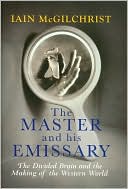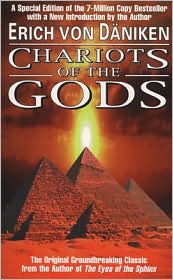The Master and His Emissary: The Divided Brain and the Making of the Western World
Search in google:
Why is the brain divided? The difference between right and left hemispheres has been puzzled over for centuries. In a book of unprecedented scope, Iain McGilchrist draws on a vast body of recent brain research, illustrated with case histories, to reveal that the difference is profound—not just this or that function, but two whole, coherent, but incompatible ways of experiencing the world. The left hemisphere is detail oriented, prefers mechanisms to living things, and is inclined to self-interest, where the right hemisphere has greater breadth, flexibility, and generosity. This division helps explain the origins of music and language, and casts new light on the history of philosophy, as well as on some mental illnesses. In the second part of the book, McGilchrist takes the reader on a journey through the history of Western culture, illustrating the tension between these two worlds as revealed in the thought and belief of thinkers and artists, from Aeschylus to Magritte. He argues that, despite its inferior grasp of reality, the left hemisphere is increasingly taking precedence in the modern world, with potentially disastrous consequences. This is truly a tour de force that should excite interest in a wide readership. Publishers Weekly A U.K. mental health consultant and clinical director with a background in literature, McGilchrist attempts to synthesize his two areas of expertise, arguing that the "divided and asymmetrical nature" of the human brain is reflected in the history of Western culture. Part I, The Divided Brain, lays the groundwork for his thesis, examining two lobes' significantly different features (structure, sensitivity to hormones, etc.) and separate functions (the left hemisphere is concerned with "what," the right with "how"). He suggests that music, "ultimately... the communication of emotion," is the "ancestor of language," arising largely in the right hemisphere while "the culture of the written word tends inevitably toward the predominantly left hemisphere." More controversially, McGilchrist argues that "there is no such thing as the brain" as such, only the brain as we perceive it; this leads him to conclude that different periods of Western civilization (from the Homeric epoch to the present), one or the other hemisphere has predominated, defining "consistent ways of being that persist" through time. This densely argued book is aimed at an academic crowd, is notable for its sweep but a stretch in terms of a uniting thesis. Copyright © Reed Business Information, a division of Reed Elsevier Inc. All rights reserved.
List of IllustrationsIntroduction The Master and His Emissary 1Pt. 1 The Divided Brain 15Ch. 1 Asymmetry and the Brain 16Ch. 2 What do the Two Hemispheres 'Do'? 32Ch. 3 Language, Truth and Music 94Ch. 4 The Nature of the Two Worlds 133Ch. 5 The Primacy of the Right Hemisphere 176Ch. 6 The Triumph of the Left Hemisphere 209Pt. 2 How the Brain Has Shaped Our World 239Ch. 7 Imitation and the Evolution of Culture 240Ch. 8 The Ancient World 257Ch. 9 The Renaissance and the Reformation 298Ch. 10 The Enlightenment 330Ch. 11 Romanticism and the Industrial Revolution 352Ch. 12 The Modern and Post-Modern Worlds 389Conclusion: The Master Betrayed 428Notes 463Bibliography 518Index 586








